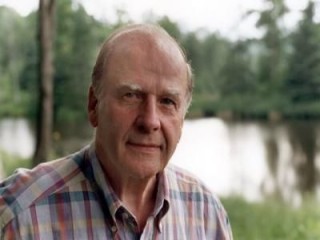
Gaylord A. Nelson biography
Date of birth : 1963-01-08
Date of death : 1981-01-03
Birthplace : Clear Lake, Wisconsin, U.S.A
Nationality : American
Category : Politics
Last modified : 2011-08-24
Credited as : Politician, U.S. Senator, founder of Earth Day
1 votes so far
Nelson was born and raised in the small Wisconsin town of Clear Lake, where his father had a small medical practice. His mother worked as a registered nurse. Politics was part of Nelson's family heritage: a great-grandfather was one of the founders of Wisconsin's Republican party. Both of Nelson's parents were also active politically, as supporters of the Progressive Republicans. Nature was also important to the young Nelson. The outdoors provided entertainment for him since his family did not even own a radio until he was in high school.
After graduating from high school, Nelson went to California, where he earned a bachelor's degree from San Jose State University. He then returned to Wisconsin to attend the University of Wisconsin law school, earning his degree in 1942. When he completed his degree, World War II was still being fought. Nelson joined the U.S. Army and was given the rank of lieutenant. He was put charge of a unit that consisted of segregated African-American soldiers, and was involved in the battles around Okinawa.
When Nelson's tour of duty ended in 1946, he returned to Wisconsin. There, he founded his own law practice in Madison and married Carrie Lee Dotson, an army nurse he met during the war. Nelson soon began a political career as well. After losing a race for the House of Representatives as a Progressive Republican in 1946, Nelson was elected to the state senate of Wisconsin as a Democrat in 1948. Nelson was re-elected to the post in 1952 and 1956.
In 1958, Nelson ran for a new office, that of Wisconsin's governor. When he won, he was only the second Democrat to hold that position in the twentieth century. During his four years in office, Nelson decided that environmental issues were quite important but often ignored by politicians. He changed that trend in his own time in office. For example, with his Outdoor Recreation Act Program, a one-cent tax on cigarette packages raised millions of dollars which was used to buy a million acres of land to preserve.
Nelson took his environmental activism to the national level when he was elected to the U.S. Senate in 1962. During his time in the office, he came to be known as a popular, though independent-minded, senator. While particularly concerned with environmental issues, he was also one of the first senators to speak out against the Vietnam War as early as 1964, a position he held until the war's end.
Nelson's definition of what was "environmental" encompassed many concerns over the years. He worked to have the pollution produced by cars regulated and was involved with the protection of the oceans. Nelson helped to get the harmful pesticide DDT as well as Agent Orange eradicated. He also wanted family planning to be available worldwide. In 1964, Nelson sponsored the Wilderness Act. This law ensured that some acreage would be set aside by federal agencies from areas where logging and mining activities took place. Four years later, he helped get the Wild and Scenic Rivers Act passed.
The most high-profile environmental act of Nelson's political career was the founding of Earth Day. Its creation was inspired by a 1969 visit to Santa Barbara, California, shortly after an oil spill occurred on a nearby shore. Nelson enlisted the help of mayors and governors from a number of states to organize an event to heighten national awareness about environmental issues. The first Earth Day occurred on April 22, 1970, and garnered widespread public support. Nearly 20 million Americans participated in public events, both educational and practical, through schools, colleges, and communities. Upon Nelson's death, Ben Beach, a member of the Wilderness Society, told Michael Kilian of the Chicago Tribune , "Earth Day proved the power of an idea. This simple but compelling idea truly made the world a better place."
As the power and public support of Earth Day was realized, Congress passed a significant number of environmental laws over the next decade, with Nelson often playing a role in their creation. Nelson's influence also led to the passage of the Environmental Protection Act, Endangered Species Act, and the Safe Drinking Water Act. Another piece of legislation put the Appalachian Trail under the protection of the federal government. President Richard M. Nixon even created a new federal department, the Environmental Protection Agency, several months after the first Earth Day.
In 1972, Nelson was asked to be Democratic presidential nominee George McGovern's running mate, but Nelson declined because did not want to be limited in what he could say. After being elected to three terms as U.S. senator, Nelson lost a close election to Robert W. Kasten, Jr., in 1980, the year many Republicans came to office on the coattails of new president Ronald Reagan. After being forced from office, Nelson took a position as a counselor to the Wilderness Society, a nonprofit environmental group, where he spent the last 24 years of his career.
By 1990, Nelson's Earth Day was still going strong, with 200 million people in 136 countries participating in that year's festivities. Nelson remained a dynamic environmental activist, still concerned with, among other things, population control. In 1995, he was awarded the Medal of Freedom by President Bill Clinton for his environmental activities. This is the highest honor a civilian can receive from the U.S. government.
Nelson died of heart failure at his home in Kensington, Maryland, a suburb of Washington, D.C., on July 3, 2005; he was 89. He is survived by his wife, his sons Gaylord, Jr., and Jeffrey; his daughter, Tia, and four grandchildren.
















